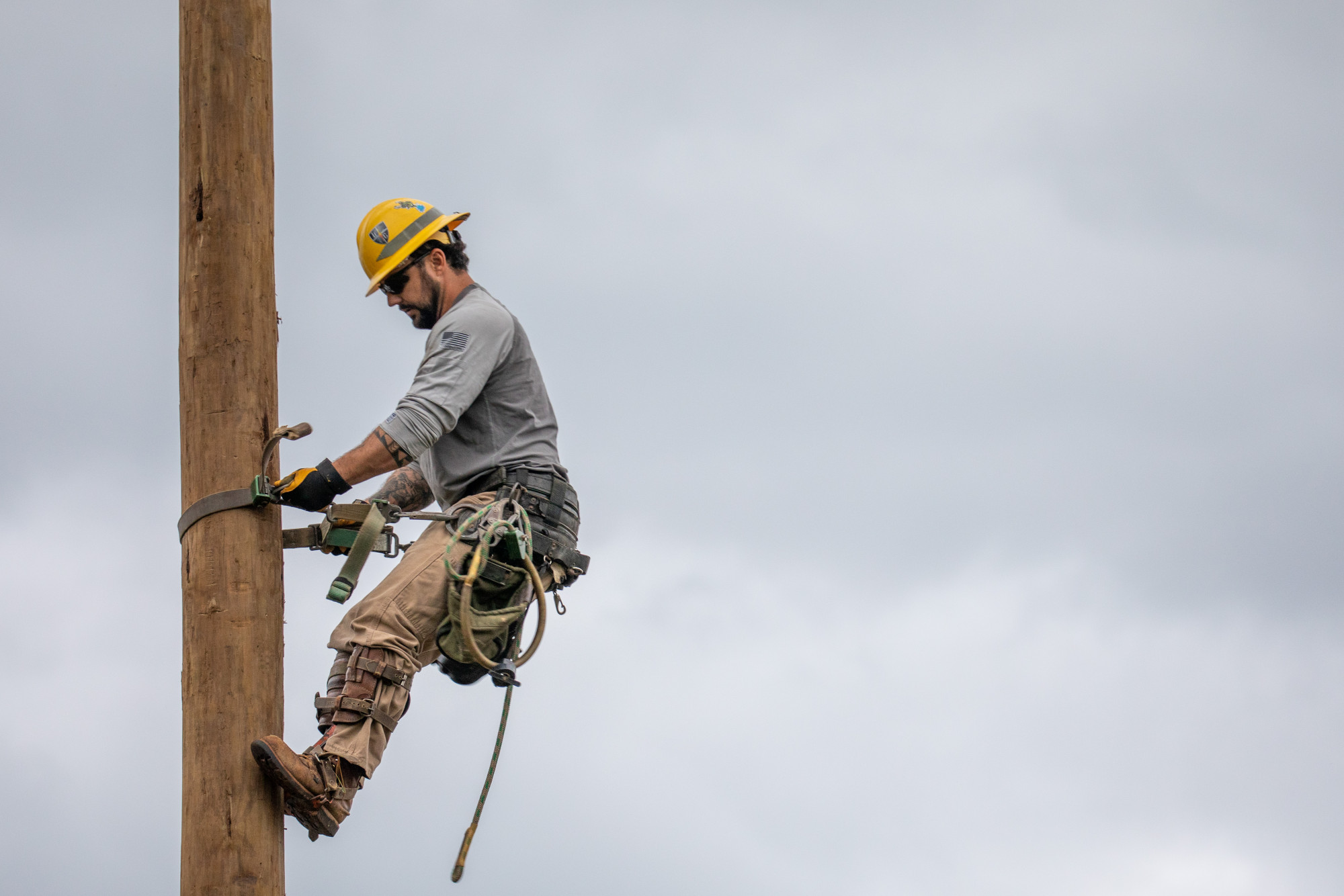The Power Behind Your Power

By: Anne Prince, NRECA
You’ve likely noticed AVECC’s crews out and about, working on power lines and other electrical equipment in our community. It’s no secret that a lineworker’s job is tough––but it’s a job that’s essential and must be done, often in challenging conditions. This month, as we celebrate Lineworker Appreciation Day on April 18, here are some interesting facts about electric lineworkers.
The work can be heavy, in more ways than one. Did you know the equipment and tools that a lineworker carries while climbing a utility pole can weigh up to 50 pounds? That’s the same as carrying six gallons of water. Speaking of utility poles, lineworkers are required to climb poles ranging anywhere from 30 to 120 feet tall. Needless to say, if you have a fear of heights, this likely isn’t the career path for you.
Lineworkers must be committed to their career –– because it’s not just a job, it’s a lifestyle. The long hours and ever-present danger can truly take a toll. In fact, being a lineworker is listed in the top 10 most dangerous jobs in the U.S. 
Lineworkers often work nontraditional hours, outdoors in difficult conditions. While the job does not require a college degree, it does require technical skills, years of training and hands-on learning. Did you know that to become a journeyman lineworker can take more than 7,000 hours of training (or about four years)? That’s because working with high-voltage equipment requires specialized skills, experience and an ongoing mental toughness. Shortcuts are not an option, and there is no room for error in this line or work.
Despite the many challenges, AVECC’s lineworkers are committed to powering our local community. During severe weather events that bring major power outages, lineworkers are among the first ones called. They must be ready to leave the comfort of their home and families unexpectedly, and they don’t return until the job is done, often days later. That’s why the lineworker’s family is also dedicated to service. They understand the importance of the job to the community.
 Nationwide, there are approximately 120,000 electric lineworkers. Here in the River Valley, AVECC has 75 lineworkers who are responsible for keeping power flowing 24/7, 365 days a year. To do this, they maintain over 7,000 miles of power lines across 14 counties. In addition to the highly visible tasks lineworkers perform, their job today goes far beyond climbing utility poles to repair a wire. Today’s lineworkers are information experts who can pinpoint power outages from miles away. Line crews now use laptops, tablets, drones and other technologies to map outages, survey damage and troubleshoot problems.
Nationwide, there are approximately 120,000 electric lineworkers. Here in the River Valley, AVECC has 75 lineworkers who are responsible for keeping power flowing 24/7, 365 days a year. To do this, they maintain over 7,000 miles of power lines across 14 counties. In addition to the highly visible tasks lineworkers perform, their job today goes far beyond climbing utility poles to repair a wire. Today’s lineworkers are information experts who can pinpoint power outages from miles away. Line crews now use laptops, tablets, drones and other technologies to map outages, survey damage and troubleshoot problems.
Being a lineworker may not seem like a glamorous job, but it is absolutely essential to the life of our community. Without the exceptional dedication and commitment of these hardworking men and women, we simply would not have the reliable electricity that we need for everyday life. So, the next time you see lineworkers, please thank them for the work they do to keep power flowing, regardless of the time of day or weather conditions. Afterall, lineworkers are the power behind your power. Please join us as we recognize them on April 18, and follow “#ThankALineworker” on social media to see how others are recognizing lineworkers.
...
Anne Prince writes on consumer and cooperative affairs for the National Rural Electric Cooperative Association, the national trade association representing more than 900 local electric cooperatives. From growing suburbs to remote farming communities, electric co-ops serve as engines of economic development for 42 million Americans across 56% of the nation’s landscape.